Sekaligus mencerdaskan"
Kami Dengan Bangga Mempersembahkan, Senebian Medical School
Fakultas Kedokteran Universitas Gadjah Mada
Fakultas Kedokteran Universitas Indonesia
Fakultas Kedokteran UI atau disingkat FKUI terdapat di di Salemba dengan total luas area 16.209 m2. Saat ini, FKUI dipimpin oleh Dr.dr. Ratna Sitompul, Sp.M(K). FKUI memiliki lima program pendidikan, yaitu Program Diploma, Program Sarjana, Program Pendidikan Dokter Spesialis, Program Magister, dan Program Doktor. FKUI merupakan fakultas kedokteran tertua di Indonesia.
Sejarah kelahiran FMUI bermula dari didirikannya Dokter Djawa School pada tahun 1851. Pada tahun 1898 Dokter Djawa School diubah namanya menjadi STOVIA, dan pada 1927 diubah lagi menjadi Geneeskundige Hooge School. Pada masa pendudukan Jepang, lagi-lagi namanya diubah menjadi Ika Daigaku.
Pada masa kemerdekaan Indonesia, pemerintah Indonesia menggabungkan Ika Daigaku ke dalam Balai Perguruan Tinggi RI dan mengubah namanya menjadi Pendidikan Tinggi Kedokteran. Setelah Indonesia mendapat kemerdekaan penuh di akhir tahun 1940-an, pemerintah mengambil alih sekolah kedokteran yang didirikan Belanda, Geneeskundige Faculteit Nood Universiteit van Indonesia, dan menggabungkannya dengan Pendidikan Tinggi Kedokteran. Gabungan ini kemudian diberi nama baru, yaitu Fakultas Kedokteran yang berada di bawah naungan Universitas Indonesia pada 2 Februari 1950. Kegiatan perkuliahan awalnya dilaksanakan di dua tempat, yaitu di Jakarta dan di Surabaya, namun sejak tahun 1954, Fakultas di Surabaya digabungkan ke Universitas Airlangga.
Program pendidikan akademik Fakultas Kedokteran UI saat ini berjenjang mulai dari Strata 1 (S1), Strata 2 (S2), hingga Strata 3 (S3).
Harvard-MIT Health Sciences and Technology
Sekolah Farmasi ITB didirikan pada 6 Oktober 1947, dengan nama Departemen Farmasi, di bawah fakultas yang bernama Faculteit voor Wiskunde and Natuurwetenschapen. Saat itu, fakultas ini merupakan bagian dari Univertitas Indonesia. Pada tanggal 1 Februari 1949, fakultas ini diubah menjadi Fakultas Ilmu Pengetahuan dan Ilmu Alam (FIPIA), namun tetap berada di bawah Universitas Indonesia. Struktur organisasi Departemen Farmasi sangat sederhana, hanya satu orang yang bertanggungjawab untuk mengatur departemen, namun sejak 1959, organisasi berkembang dan seorang sekretaris diangkat untuk membantu ketua departemen
Pada tahun 1953 untuk pertama kalinya, warga negara Indonesia, Prof. dr. Rd Mhd Djuhana Wiradikarta, menjadi dekan of FIPIA, salah satu staf akademik di Departemen Farmasi, sampai tahun 1959. Pada tanggal 2 Maret 1959, Fakultas Teknik dan FIPIA digabung menjadi sebuah institusi baru, yaitu Insitut Teknologi Bandung (ITB) dan Departemen Farmasi menjadi bagian dari Departemen Kimia dan Biologi sampai tahun 1961. Setelah perubahan organisasi pada tahun 1973, Departemen Farmasi menjadi bagian dari Fakultas Matematika dan Ilmu Pengetahuan Alam.
Organisasi
Hari Jum’at tanggal 10 Juli 2009 bertempat di Gedung BPI ITB telah dilaksanakan Pidato Ilmiah Prof. Sukmadjaja Asyarie, Guru Besar dalam bidang Farmakokinetika Sekolah Farmasi ITB, dengan judul: “Peranan teori farmakokinetika dalam meningkatkan kualitas kesehatan masyarakat” . Dalam pidatonya tersebut beliau menyampaikan bahwa:
1. Farmakokinetika merupakan ilmu yang dapat digunakan untuk membuat proses penggunaan obat dengan rute pemberian yang berbeda menjadi efektif dan rasional.
2. Farmakokinetika juga dapat digunakan untuk mempelajari kinetika residu obat didalam jaringan tubuh hewan fungsi waktu. Dengan kinetika ini dapat menetapkan Batas Maksimum Residu (BMR) setelah terlebih dahulu mengetahui tingkat toleransi dan akhirnya kita dapat menetapkan waktu tunggu (withdrawal time) untuk menjamin produk yang berasal dari hewan aman dan sehat untuk dikonsumsi.
3. Riset Farmakokinetika berkaitan erat dengan industri bahan baku obat. Di Indonesia industri bahan baku obat sintetis masih sangat langka dan bahkan diimpot dari luar negeri sebanyak 90% sementara riset famakokinetika dibidang obat bahan alam tesedia luas di tanah air, oleh karena itu meskipun agak terlambat perintisan industri bahan baku obat sintesis perlu terus dikembangkan, hal ini berkaitan dengan ketahanan kesehatan nasional.
Penelitian
Publikasi Ilmiah
Pascakampus
Ilmu Keperawatan UNPAD
Alamat : Kampus Jatinangor, Bandung 40600
Telepon : (022) 7795596
Faks : (022) 7795596
Dekan : Hj. Helwiyah Ropi, S.Kp., MCPN.
Email : dekanpsik@unpad.ac.id
website : http://fik.unpad.ac.id/
Fakultas Ilmu Keperawatan didirikan berdasarkan SK Rektor No. 1020/J06/Kep/2005 tertanggal 8 Juni 2005. Fakultas ini merupakan pengem-bangan dari Program Studi Ilmu Keperawatan pada Fakultas Kedokteran.
Visi
Menjadi lembaga pendidikan tinggi keperawatan sebagai pusat pengembangan ilmu dan profesi keperawatan yang mampu berkompetisi di Asia Tenggara dengan unggulan keperawatan kritis dan keperawatan komunitas.
Misi
- Menyelenggarakan pendidikan yang dikelola secara profesional, efektif, efisien dan transparan serta menghasilkan lulusan berkapasitas tinggi sebagai ilmuwan yang mampu berkompetisi secara global, beretika, dan berpijak pada hukum serta berwawasan lingkungan.
- Mengembangkan riset ilmiah keperawatan untuk pengembangan ilmu dan teknologi keperawatan nasional.
- Menyelenggarakan pengabdian kepada masyarakat dengan mengembangkan sistem pelayanan keperawatan profesional terpadu di komunitas.
- Mengembangkan standard keperawatan profesional bersama dengan organisasi profesi dan institusi terkait.
- Mengembangkan pelayanan keperawatan profesional sesuai dengan nilai budaya masyarakat.
- Menjalin kerja sama secara nasional maupun regional dalam bidang keperawatan mencakup bidang pendidikan, penelitian, dan pengabdian kepada masyarakat.
Program Pendidikan yang diselenggarakan :
Program Sarjana Reguler
Program Studi :
- Ilmu Keperawatan
Terdapat 48 orang pengajar pada Fakultas Ilmu Keperawatan, dan belum ada guru besar.
Sampai tahun akademik 2006/2007, Fakultas Ilmu Keperawatan telah menghasilkan lulusan sebanyak program sarjana 229 orang.
Harvard Medical School
Harvard Medical School (HMS) is one of the graduate schools of Harvard University. It is currently ranked first among American medical schools by U.S. News and World Report.
Located in the Longwood Medical Area of the Mission Hill neighborhood of Boston, Massachusetts, H.M.S. is home (as of Fall 2006) to 616 students in the M.D. program, 435 in the Ph.D. program, and 155 in the M.D.-Ph.D program. HMS' M.D.-Ph.D program allows a student to receive an M.D. from HMS and a Ph.D from either Harvard or the Massachusetts Institute of Technology (see Medical Scientist Training Program).
ABOUT US
RESOURCES
- Newsroom
- Publications
- Event Calendar
- Countway Library
- Programs in Diversity
- Martin Conference Center
- Technology Development
- Conflict Disclosure Form
- Integrity in Science
Teaching affiliates
- Massachusetts General Hospital
- Brigham and Women's Hospital
- Children's Hospital Boston
- Dana-Farber Cancer Institute
- Beth Israel Deaconess Medical Center
- Massachusetts Eye and Ear Infirmary
- Joslin Diabetes Center
- Spaulding Rehabilitation Hospital
- McLean Hospital
- Massachusetts Mental Health Center
- Mount Auburn Hospital
- Cambridge Hospital
- VA Boston Healthcare System
- Harvard Pilgrim Healthcare
- The Forsyth Institute
- Schepens Eye Research Institute
Research
The Harvard Faculty of Medicine conducts research in numerous locations around Boston. Six academic basic science departments are housed in and around the 1906 quadrangle that is the nucleus of Harvard Medical School. However, many of the faculty appointed to these departments are based at 17 affiliated institutions, including teaching hospitals. Here, 50 clinical departments conduct vast amounts of basic and clinical research. The Quad area also houses two social science departments and the Department of Ambulatory Care and Prevention, a joint venture with Harvard Pilgrim Health Care, a major HMO. PhD training programs are offered through the Division of Medical Sciences and information for potential applicants is available at Education & Admissions.
Basic and Social Science Departments on the Quad
- Biological Chemistry and Molecular Pharmacology
- Cell Biology
- Genetics
- Microbiology and Molecular Genetics
- Neurobiology
- Pathology
- Ambulatory Care and Prevention
- Health Care Policy
- Global Health and Social Medicine
- Systems Biology

Postdoctoral Opportunities at HMS
Giovanni Armenise-Harvard Foundation
Clinical Departments
Centers, Divisions and Institutes
Research Computing
Core Facilities
Research Administration
Faculty and Staff Directory

- Find a Faculty Director
- Apply for Admission
- Continuing Medical Education
- Graduate Medical Education
- Read Hopkins Medicine Magazine
Contact Us
When dialing from within the Johns Hopkins Hospital campus, dial the last five digits only:
East Baltimore
(Medical Institutions Campus)
| School of Nursing 1889 | School of Medicine 1893 | School of Public Health 1916 |
East Baltimore (Medical Institutions Campus)
The campus in East Baltimore and is home to the School of Medicine, the Bloomberg School of Public Health, and the School of Nursing. Collectively known as Johns Hopkins Medical Institutions (JHMI) campus, it comprises several city blocks spreading from the original Johns Hopkins Hospital building and its trademark dome.
The School of Medicine is associated with clinical practice at Johns Hopkins Hospital.
Divisions
- School of Medicine: The School of Medicine is headquartered at the university's Medical Institutions campus in East Baltimore with Johns Hopkins Hospital. The School of Medicine is widely regarded as one of the best medical schools and biomedical research institutes in the world.
- School of Nursing: The School of Nursing, is located in East Baltimore and is affiliated with Johns Hopkins Hospital and the School of Medicine
- Bloomberg School of Public Health: The Bloomberg School was founded in 1916, is the first and largest public health school in the world. It has consistently been ranked the number one school of public health by U.S. News & World Report.[18]
Maps and Directions to Johns Hopkins Medicine Locations
We invite you to explore the maps and directions at our locations below:
| Hospital Campuses |
The Johns Hopkins Hospital and Medical Campus
- Johns Hopkins Outpatient Center
- Kimmel Cancer Center at The Johns Hopkins Hospital
Johns Hopkins Bayview Medical Center
Howard County General Hospital
| Johns Hopkins Community Locations |
Johns Hopkins Health Care Center at Cedar Lane
Johns Hopkins in Charles County
Johns Hopkins in Frederick
Johns Hopkins in Greater Dundalk
Johns Hopkins Health Care & Surgery Center at Green Spring Station
Johns Hopkins at Hager Park
Johns Hopkins in Laurel
Johns Hopkins in Montgomery Grove
Johns Hopkins Health Care Center at Odenton
Johns Hopkins in Riverside
Johns Hopkins in Westminster
Johns Hopkins Health Care & Surgery Center at White Marsh
Johns Hopkins at Wyman Park
| Maps |
East Baltimore Street Map
Johns Hopkins Hospital Campus Map
Johns Hopkins Hospital Visitor's Guide
| See Also |
Traveling to and within Baltimore
Housing and Hotel Accomodations

Research Topics
General Research | |
| Addictions, affective disorders, Alzheimer’s, mood disorders, anxiety disorders, brain injury, brain stimulation, child and adolescent, eating disorders, geriatric psychiatry, Huntington's, neurobiology, parkinson's and memory disorders research | Department of Psychiatry and Behavioral Sciences |
| Allergy and asthma research | Division of Allergy & Clinical Immunology |
| ALS research | The Robert Packard Center for ALS Research at Johns Hopkins |
| Anesthesiology research | Department of Anesthesiology and Critical Care Medicine |
| Arrhythmia , cardiomyopathy, heart failure, preventative cardiology and vascular topics research | Heart Institute |
| Biomechanics research, gait and mobility disorders, swallowing dysfunction research | Department of Physical Medicine and Rehabilitation |
| Brain tumor, MS, pediatric neurosurgery and transverse myelitis research. Project RESTORE | Neurology and Neurosurgery Research Areas |
| Caffeine addiction research | Johns Hopkins Bayview Medical Center |
| Cochlear implant technology research | The Listening Center |
| Craniofacial disorders research | Center for Craniofacial Development and Research |
| Diabetes research | Diabetes Research Center |
| General clinical research information | General Clinical Research Center |
| GI, livers and pancreas diseases research | Gastroenterology & Hepatology Resource Center |
| Mass spectrometers research | Middle Atlantic Spectrometry Lab |
| Neurovascular and Spine Interventions and Anatomy | Interventional Neuroradiology |
| Obsessive Compulsive Disorder research | Department of Psychiatry and Behavioral Sciences |
| Otolaryngology (head and neck surgery) research | Department of Otolaryngology |
| Ophthalmology topics research | Wilmer Eye Institute |
| Pain and pain relief research | Blaustein Pain Center |
| Pediatrics research | Children's Center |
| Pemphigus research | Department of Dermatology |
| Radiology topics research | Department of Radiology |
| Sinus research | Sinus Center |
| Urological topics research | Brady Urological institute |
Cancer Research | |
| Cancer Biology, Cancer Immunology, Viral Oncology, Cancer Prevention and Control, Chemical Therapeutics, Cancer Imaging research topics | Sidney Kimmel Cancer Center |
| Cystic Fibrosis Research | Cystic Fibrosis Center |
| Head and neck cancer topics | The Head & Neck Cancer Center |
| Lymphoma research | The Johns Hopkins Lymphoma SPORE |
| Gynecological cancer research | Department of Gynecological Oncology |
Genetics Research | |
| CFF Genotyping Center for Cystic Fibrosis | Cystic Fibrosis- Genotyping Center |
| Immunogenetics and Disease research | Immunogenetics Lab |
| Inherited genes and their role in disease research | Center for Inherited Gene Research |
| Schizophrenia and bipolar genetics research | Epidemiology & Genetics Program in Psychiatry |
Genome Biology | |
| The Genetics of Cell Motility and Invasion | Lab of Denise Montell |
| Research into different types of cell engineering | Core Facilities |
| Working to better understand keratin proteins | Coulombe Labs |

College of Veterinary Medicine
- Biomedical Sciences
- Clinical Sciences
- Population Medicine and Diagnostic Sciences
- Microbiology and Immunology
- Molecular Medicine
Weill Cornell Graduate School of Medical Sciences (New York City)
- Biochemistry and Structural Biology
- Cell Biology and Genetics
- Immunology
- Molecular Biology
- Neuroscience
- Pharmacology
- Physiology, Biophysics, and Systems Biology
- Clinical Epidemiology and Health Services Research
Weill Cornell Medical College (New York City)
- Anesthesiology
- Biochemistry
- Cardiothoracic Surgery
- Cell and Developmental Biology
- Dermatology
- Medicine
- Microbiology and Immunology
- Neurology and Neuroscience
- Neurological Surgery
- Obstetrics and Gynecology
- Ophthalmology
- Orthopaedic Surgery
- Otorhinolaryngology (ENT)
- Pathology and Laboratory Medicine
- Pediatrics
- Pharmacology
- Physiology and Biophysics
- Public Health
- Psychiatry
- Radiology
- Surgery
- Urology

Weill Cornell Medical College (Qatar)
Weill Cornell Medical College (New York City)
Weill Cornell Medical College's close affiliations with NewYork-Presbyterian Hospital and with Memorial Sloan-Kettering Cancer Center and Rockefeller University make it an integral part of a world-renowned center of academic medicine and biomedical research, uniquely positioned to train outstanding physicians and medical scientists.
Weill Cornell Medical College (Doha, Qatar)
The Doha, Qatar, branch of Weill Cornell Medical College is the first American medical school ever set up overseas. It is funded by the Qatar government through the Qatar Foundation, operated by Cornell, and began its full Cornell M.D. degree program in September 2004. It also provides a preparatory two-year pre-medical program.
Weill Cornell Graduate School of Medical Sciences (New York City)
Weill Cornell Graduate School of Medical Sciences' seven carefully designed, research-oriented Ph.D. graduate programs provide superb training for those interested in biomedical sciences and in the scientific method of conducting investigative research. The professional staffs of Weill Cornell Medical College and of the Sloan-Kettering Institute form the core faculty of the Graduate School of Medical Sciences.
College of Veterinary Medicine
The College of Veterinary Medicine endorses the concept of one biology in advancing the understanding of animal and human health at the interface of discovery and application. With access to Cornell's world-class resources and recognized strengths in the physical and life sciences, the college fosters open collaboration across disciplines and institutional boundaries, to deliver the greatest possible benefits to society.
College of Agriculture and Life Sciences
- New York State Agricultural Experiment Station, Geneva
- Animal Science
- Applied Economics and Management
- Biological and Environmental Engineering
- Biological Statistics and Computational Biology
- Communication
- Crop and Soil Sciences
- Development Sociology
- Earth and Atmospheric Sciences
- Ecology and Evolutionary Biology
- Education
- Entomology
- Food Science
- Horticulture
- Landscape Architecture
- Microbiology
- Molecular Biology and Genetics
- Natural Resources
- Neurobiology and Behavior
- Nutritional Sciences
- Plant Biology
- Plant Breeding and Genetics
- Plant Pathology and Plant-Microbe Biology
- Statistical Science
















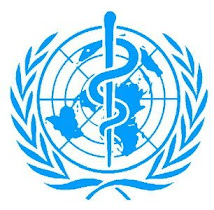



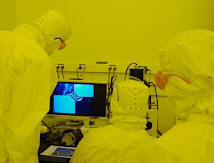
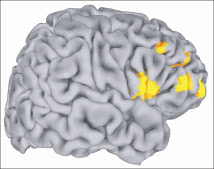


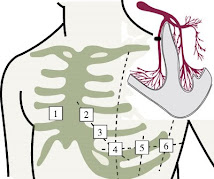


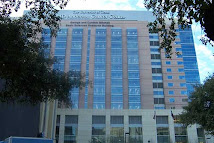

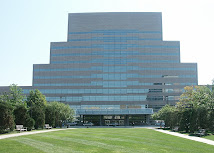

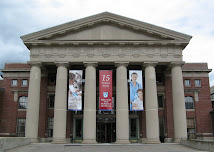
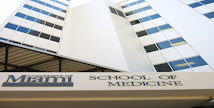

Tidak ada komentar:
Posting Komentar